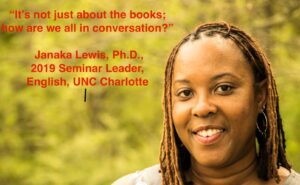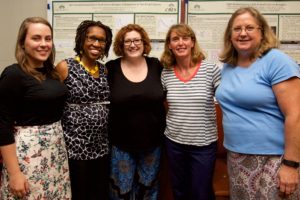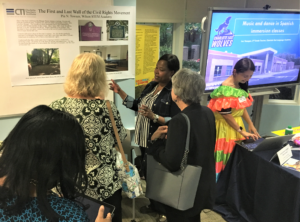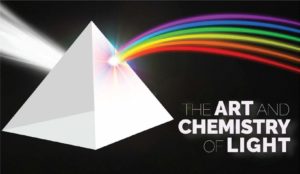Emily Makas, Architectural and Urban History, College of Arts + Architecture, UNC Charlotte
Through an exploration of commemorative spaces associated with major moments and figures in United States history, this seminar will examine the way memories and interpretations are interconnected to American identity. We will comparatively investigate nuances of meaning at commemorative spaces at sites of memory, such as Civil War battlefields and Ground Zero in New York City, as well as sites without direct connections to the events remembered, such as on the National Mall in Washington, DC.
Topics to be addressed include memorialization of the founding fathers and other important figures, the Revolutionary and Civil Wars, slavery and civil rights, twentieth century wars and the Holocaust, and victims of terrorism. Parallel commemorative practices in other countries will be discussed for comparative purposes. Varied interpretations and practices in different eras and for different historical events will frame our exploration of the connection between ideas of America and the country’s memorials. For example, we will explore connections between Revolutionary memorials and foundational myths, slavery memorials and white privilege, and Holocaust memorials and liberator narratives.
Questions of form, inscription, timing, and site will be analyzed for a variety of memorials and memorial museum complexes. How do malleable ideas like myth, memory, history, and identity interact when solidified in stone and bronze? What role have abstraction and realism played in efforts to represent the past? How do memorials respond to, reject, or embrace monumental memorial traditions in the late 20th and early 21st century? How do memorials to tragedies and dark chapters compare with memorials to triumphs and celebratory moments in American history? How do memorial and museums address the specific connections between their site’s history and the present? How do memorials built in the decades immediately after an event differ from those opening generations later? How have interpretations and memorial sites changed over time?
The seminar’s objective is to interrogate how discussions about commemorative spaces can be used to engage and explore the complexities of American history and identity. Key texts for this seminar will include excerpts from Erika Doss, Memorial Mania: Public Feeling in America (Chicago, 2012); Harriet Senie Memorials to Shattered Myths: Vietnam to 9/11 (Oxford, 2016); and Kirk Savage, Monument Wars: Washington DC the National Mall, and the Transformation of the Memorial Landscape (California, 2011), as well as supplemental articles and essays.
Explore curriculum units developed by Fellows in this seminar here.



























 Home
Home